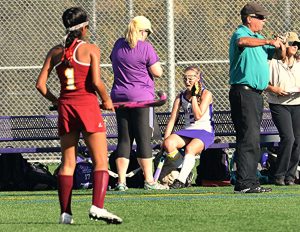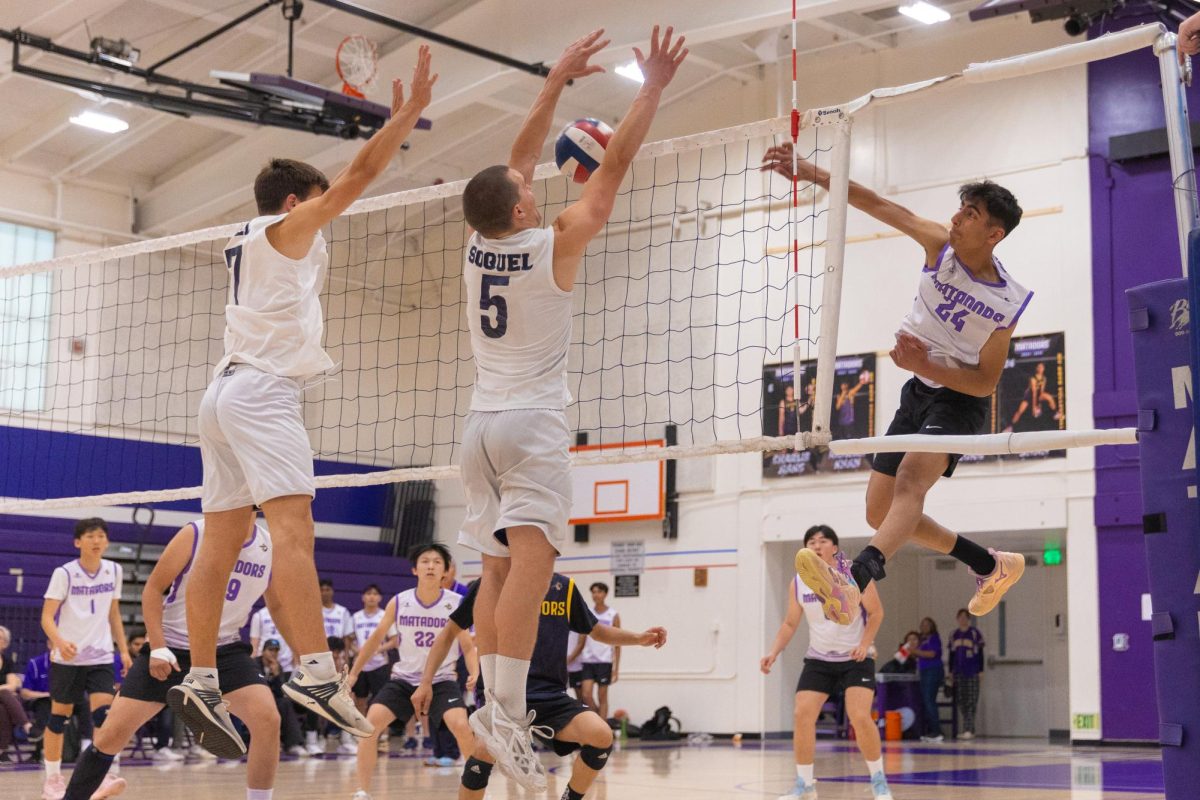
<span style="color: #ffffff;">For field hockey coach Bonnie Belshe, the love for the hockey stick and ball all started as a young girl.
Having played many sports, she saw firsthand how different coaches could teach different skills. She knew how much work went into developing a skill in any of the sports. More importantly however, she knew that out of all those sports field hockey was her favorite.
For varsity field hockey coach Denise Eachus, her love for the hockey stick and ball all started when she was a teenager in high school.
Eachus’ coaching career began early in high school, when she began coaching basketball. Even though she had played and coached basketball, she also pursued field hockey. She hoped that in 1998, when she became an MVHS field hockey coach, she could spread her love for the sport onto other students.
The two coaches unknowingly had similar thoughts in mind.
Belshe knew that if she ever received the opportunity to coach field hockey, she would. In her fourth year of teaching at MVHS, a position fortuitously opened up.
Belshe could finally go back to doing what she loved as a child. And, although as a coach she couldn’t be the goalie, she knew that having a role in the flip side of the sport would prove to be just as exciting an experience.
As soon as Belshe became a coaching assistant for Eachus, Belshe realized the coaching style was drastically different from anything she had experienced firsthand playing sports because of the way athletes on the junior varsity and varsity did everything together.
“We run it as one field hockey team at Monta Vista that has two squads: we’ve got a varsity squad and a [junior varsity] squad,” Belshe said. “When we say team, we are talking about everyone all together. They warm up together, stretch together and we usually do the first drill as the whole team.”
As a duo, the two ensure that the varsity and junior varsity players are well acquainted with each other and maintain a mutually supportive relationship.
Senior Mallory Sara Strom, a varsity player from sophomore to senior year, appreciated this unique style of coaching, especially as a first time player playing field hockey. Much like Belshe, Strom was involved in various sports and had experienced many coaches’ unique teaching styles.
Because she had been taught by vastly different coaches, Strom recognized how truly different the duo’s coaching style was in comparison to other coaches who separated their athletes by junior varsity or varsity. They put an extremely strong emphasis on learning the skills to the best of each athlete’s ability all the while maintaining respect for each other and the game itself.
“By having the upperclassmen helping to teach the underclassmen because in field hockey, a lot of players come in with no experience,” Strom said. “You need that interaction between the [junior varsity and varsity] teams and it builds a much stronger, much more supportive, much more loving culture.”


Despite two separate group pictures, field hockey coaches Bonnie Belshe and Denise Eachus emphasize that the junior varsity and varsity teams work together. Photos used with permission of El Valedor.
Strom believes that Eachus’ and Belshe’s extensive knowledge of the rules allows them to pass it on to their athletes and in turn, help them respect the referee, respect the players and respect the game.
She recalls a moment that showed this respect was when the referee at a game made a call about a player’s goal, deeming it dangerous play. Although the call didn’t get changed, the players were able to respectfully explain their perspective of the rules and the shot itself.
“It’s Eachus and Belshe teaching that respect for the officials for the game that allowed that to happen,” Strom said. “The CCS organization heard about this and put a little blurb on their page ‘look at this excellent sportsmanship.’”
Strom, having known about the Double-Goal Coach Award, emphasized the importance of highlighting Eachus’ and Belshe’s coaching methods and nominated them both as possible recipients for the award.
“We couldn’t nominate one without the other,” Strom said. “Because it’s them together that makes the program so great.”
According to the nonprofit organization Positive Coaching Alliance, the Double-Goal Coach award is presented to coaches who impart life lessons upon students through a sport.

The competition isn’t easy— out of the 2400 nominated coaches, who come from 28 different states and 19 different sports, only 50 go on to become national winners. Out of all the nominated coaches, Eachus and Belshe were the only pair to win together.
Soon after Strom nominated Belshe and Eachus, Belshe received an email confirming her as one of the semi-finalists for the award. It was only two more weeks until Belshe and Eachus found themselves to be the national winners of the Double-Goal Coach Award.
Both coaches agree that winning the award serves as motivation to encourage varsity and junior varsity teams to interact and support each other and continue improving their athletic skills. Because coaching is not a stagnant process, the two coaches will continue to change the process if necessary.
Even though their teaching isn’t about the Double-Goal Coach award, it still serves as a sign of the positive impact the duo are having on the students’ lives.
“It was a moment of pride,” Eachus said. “But it was also a moment of disbelief.”








